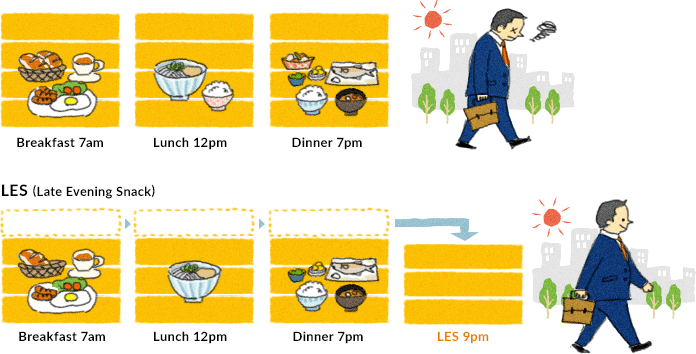Taking a late evening snack is a simple measure to help prevent liver cirrhosis
If following a typical meal routine, you might have dinner at 7pm and eat breakfast at 7am, meaning that you will be fasting for 12 hours from dinner until breakfast the next day. In patients with liver cirrhosis, the liver's ability to store and release glycogen (a source of energy) is impaired, leading to chronic energy deficiency. Therefore, when a cirrhosis patient wakes up in the morning having last eaten at 7pm the day before, they will be experiencing starvation at the same level as a healthy person who has fasted for 3 days, causing more damage to their body every morning.
With late evening snack therapy (LES), the patient eats a light supper before going to bed to prevent the liver from becoming energy deficient during the night. However, to avoid an excessive daily intake of calories (which can lead to obesity), it's important to reduce the calorific intake of the other three main meals of the day, and keep the LES to around 100-200kcal.

When following a late evening snack therapy regimen, you will not suffer from insufficient energy in the middle of the night. This in turn will help you wake up feeling more refreshed, and with better skin complexion. Ascites and body swelling will decrease, and leg cramps and the thinning of muscles will stop. The volume of your sugar intake during each meal will decrease, helping reduce the risk of developing a hyperglycemic condition, thereby also improving glucose intolerance (a condition similar to diabetes).
Late evening snack therapy has been recognized as a nutritional therapy for liver cirrhosis both in Japan and overseas. If you are considering trying this method, please consult your doctor or registered dietician.
Consult your doctor, pharmacist, or nutritionist about your daily intake of protein and calories.






